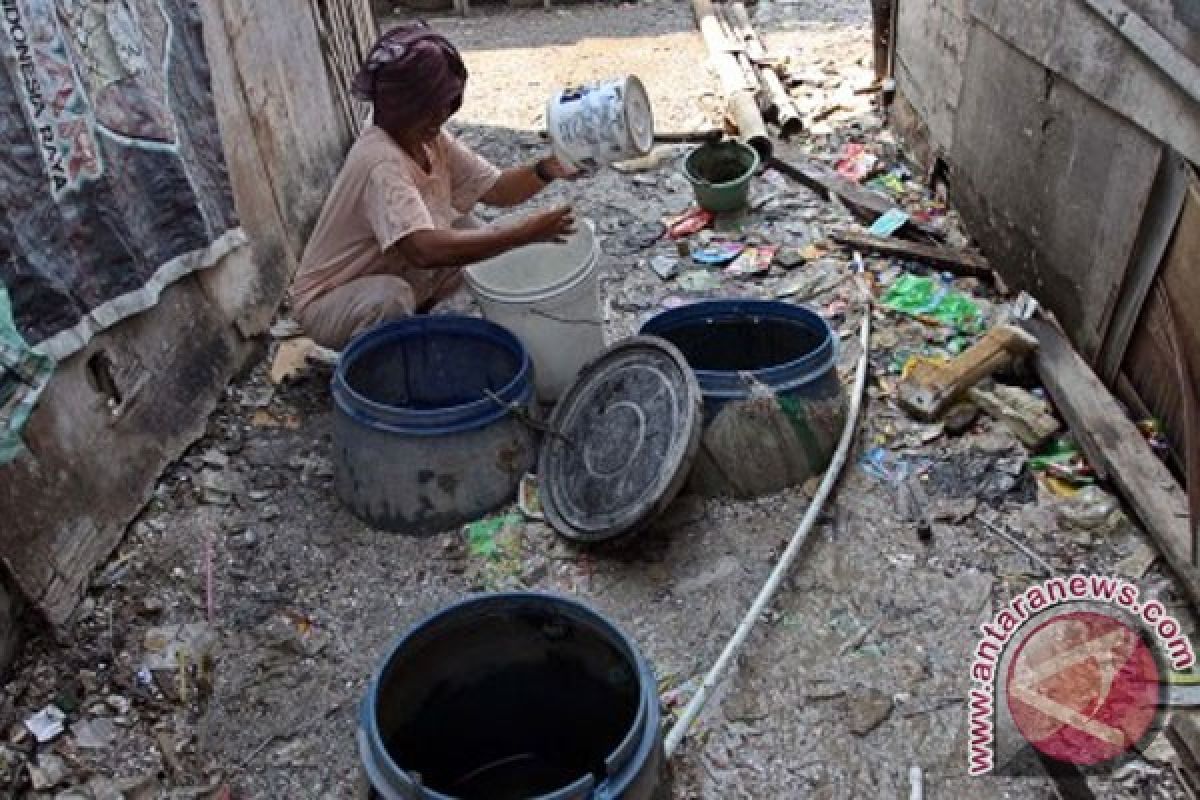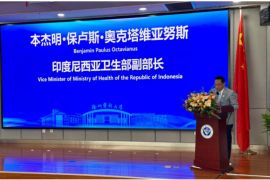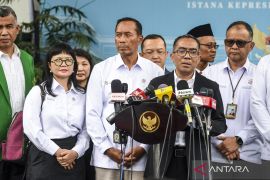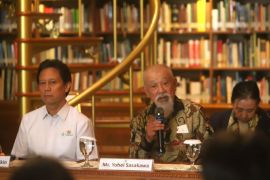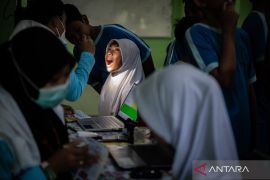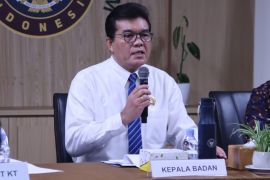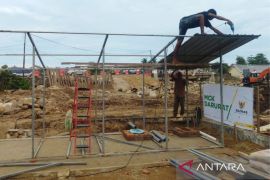Therefore, sanitation improvement programs are now on top priority for both the government and public in order to bring about changes in the peoples lifestyles and their environment.
For instance, Central Bangka district in Bangka-Belitung (Babel) province is among the several regions in Indonesia where most of the community members continue to live without proper sanitation facilities.
The lack of proper sanitation facilities in Central Bangka has so far compelled several people in the district to practice open defecation.
But now, they have vowed to put a stop to this unhealthy lifestyle that could potentially increase the risk of spreading various diseases.
Hence, Health Minister Nila Farid Moeloek has lauded the "Stop the Practice of Open Defecation" (BABS) program being implemented by the people in Central Bangka district.
"I am very proud of the people in this region who have declared that they will stop the practice of open defecation," she remarked during a working visit here on Tuesday.
The health minister noted that it was important to promote healthy sanitation practices among all parties, as poor awareness regarding the proper management of domestic wastewater and the discharge of untreated waste into the water system was the most common sanitation problem in the country.
With regard to sanitation, Indonesia is still lagging behind, and in order to catch up with other countries, she affirmed that the government was adopting various measures to provide better sanitation and waste management facilities across the country.
None of these efforts would be effective without the publics support in the form of better sanitary behavior, but the health minister expressed pride that the members of the public have realized that this habit should be stopped.
"I am proud to see the students themselves taking the initiative to stop open defecation and encourage the members of the public to change this unhealthy behavior in order to maintain public health," she remarked.
According to Moeloek, open defecation is now a health issue that cannot be taken for granted.
"There should be a common movement and strong commitment from the community and local government to implement the BABS program," the health minister emphasized.
In the meantime, Central Bangka District Head Erzaldi Rosman pointed out that of all 56 villages in the district, 20 have implemented the program.
"We are aggressively running the program to stop the practice of open defecation, particularly by those living in rural areas," he affirmed.
Erzaldi pointed out that some adults were still found defecating carelessly into a plastic bag and then discarding it into the woods or the river.
"Therefore, we have appointed some students as stop-open-defecation ambassadors to spread awareness among the adults to change their unhealthy lifestyle," the Central Bangka district head stated.
Further, Ministry of Public Works and Public Housings Director of Environmental and Sanitation Development Maliki Moersid stated that the government has encouraged youngsters to help the government in its efforts to achieve the target of 100 percent access to sanitation by the end of 2019.
"We expect the younger generation in Indonesia to become the agents of change who are concerned about sanitation and act as role models for the public to follow a healthy lifestyle," Moersid noted in a statement recently.
According to Moersid, the younger generation, with its creativity, diverse ideas, and new innovations, can help solve the sanitation problems in various regions across the country.
Moreover, he noted that youngsters, as the future successors of the nation, have the potential and ability to become the agents of change in urging both the neighborhood community heads and the public to care for environmental sanitation and sustainable settlement.
Moersid further explained that the government of Indonesia is committed to creating livable and sustainable settlements by pursuing infrastructure development in various fields of housing, water, and sanitation.
"To achieve these objectives, the support of all stakeholders is needed to encourage all elements of society to care and play an active role in addressing the sanitation problems that exist today," he remarked.
The director of environmental and sanitation development at the Ministry of Public Works and Public Housing affirmed that the target of the governments National Medium-Term Development Plan for 2015-2019 is to implement the 100-0-100 mandated program, which means 100 percent access to potable water, zero percent slum-free areas, and 100 percent access to sanitation by the end of 2019.
In his address to open the Water, Sanitation and Cities (WSC) 2015 Forum and Exhibition at the Jakarta Convention Center in May-end, Vice President Jusuf Kalla noted that the problem of sanitation was not something to be discussed but rather to be addressed.
"Whatever we talk about sanitation in a conference is pointless, unless we work hard to address this problem," the vice president affirmed.
According to Kalla, important aspects to be considered in terms of improving sanitation are the regular cleanup of water sewers and drains by the community members and the local government.
The vice president stated that these efforts can sustainably provide a healthy environment for all.
(O001/INE/O001)
EDITED BY INE
(O001/KR-BSR/O001)
Reporter: Otniel
Editor: Jafar M Sidik
Copyright © ANTARA 2015
